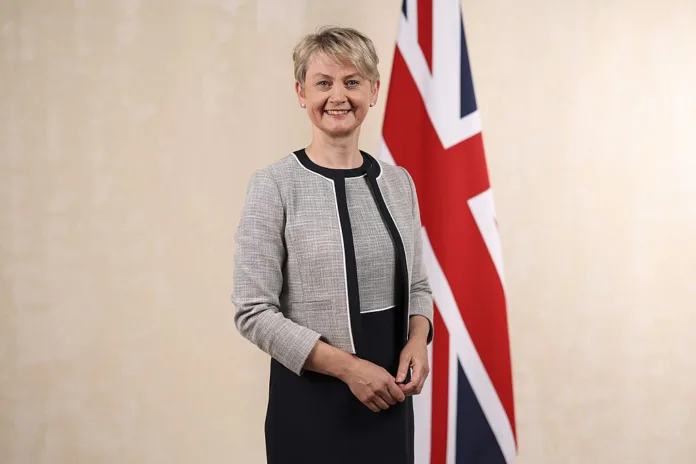Author says she’ll keep funding Palestine Action despite UK proscription as terrorist group
Irish novelist Sally Rooney has vowed to continue supporting Palestine Action despite the group being outlawed as a terrorist organisation in the United Kingdom. Writing in the Irish Times, the author of Normal People and Intermezzo said she would use both her earnings and her public profile to back the direct-action group, even if it meant she was branded a supporter of terrorism under UK law.
“If this makes me a supporter of terror under UK law, so be it,” she wrote, insisting that she would go on funnelling proceeds from her literary work and television adaptations into the cause. That includes residuals from the BBC co-productions of Normal People and Conversations with Friends.
Her intervention came just weeks after Home Secretary Yvette Cooper confirmed that Palestine Action was not simply “a regular protest group known for occasional stunts” but an organisation the government deemed sufficiently dangerous to proscribe. Cooper cited what she described as disturbing intelligence about the group’s planning and training, including an “Underground Manual” that allegedly gave guidance on identifying targets and evading police.
Embed from Getty ImagesPalestine Action was officially banned on 5 July, with the Home Office citing a long record of direct action targeting arms companies linked to Israel. In the weeks since, more than 700 people have been arrested, including over 500 during a demonstration in central London last week.
Rooney has been one of the group’s most high-profile cultural defenders. She previously argued in the Guardian that the proscription was “an alarming attack on free speech”. In her latest piece, she described the British government as having stripped citizens of basic rights in order to preserve its ties with Israel, warning of “profound” consequences for cultural and intellectual life.
The controversy follows a series of headline-grabbing actions by Palestine Action. In June, members broke into RAF Brize Norton and sprayed two planes with red paint, causing an estimated £7m worth of damage. The group has also been linked to a break-in at Elbit Systems UK, an Israeli defence contractor in Bristol, in August 2024. That case, involving 18 defendants, is scheduled for trial later this year, with charges ranging from aggravated burglary to violent disorder.
Rooney’s outspoken stance is consistent with her past actions. In 2021, she refused to allow her novel Beautiful World, Where Are You to be translated into Hebrew by an Israeli publisher, citing her support for cultural boycotts of Israel. At the time she said it would “be an honour” to have her work translated into Hebrew by a company that shared her political commitments.
The novelist’s latest declaration is likely to intensify the political storm around her. By openly linking her financial support to a banned organisation, she has put herself on a collision course with UK counter-terror laws. While the government has not indicated it intends to pursue action against individual supporters abroad, Cooper has been clear that she views Palestine Action as far beyond the bounds of lawful protest.
For Rooney, however, the stakes are moral rather than legal. She argued that the war in Gaza, in which more than 61,000 Palestinians have been killed according to local health authorities, amounted to genocide, and that extraordinary measures were justified in resisting it. She said she would not be silenced by proscription orders or political threats.
The author, who lives in the west of Ireland, has not commented beyond her op-ed, and her management has declined to elaborate. A BBC spokesperson stressed that matters relating to proscribed organisations were for the authorities, not the broadcaster.
Israel rejects accusations of genocide, pointing to Hamas’s 7 October 2023 attack, which killed around 1,200 people and saw more than 250 hostages taken. But human rights groups, including some within Israel itself, argue that the scale and methods of the military response constitute crimes against humanity.
Against that backdrop, Rooney has nailed her colours firmly to the mast, accepting whatever labels UK law may apply. Her declaration has ensured that one of the English-speaking world’s most celebrated novelists is now also one of its most controversial political voices.
